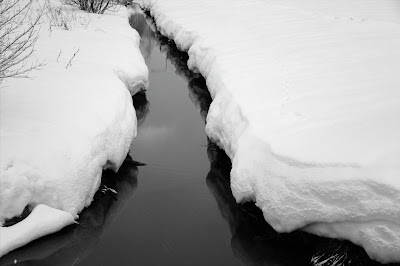So I went and got the two volumes of The Letters of T.S. Eliot at the uni library. They are surprisingly thorough, some 900 pages each. I partly read, partly browsed through the first of them, a revised edition of the original, published in 2009 (I was going to say 'published last year' but we are freshly in 2011 now). It adds 200 pages to the original edition of 1988. Included indeed are several wartime (1st world war) letters of Vivien Eliot to T.S.'s mother, in which she details the state of Tom's woollen undergarments (several are in need of darning), grieves their expensiveness and tells how she all the same has been able to obtain some items of clothing. What the letters reveal is... life, getting on with life. I'm not sure what the editors' intention was with such hefty volumes. Perhaps simply to present things 'as is' rather than to create a particular kind of impression with a more selective publishing of the letters. Of course, in a different sense the volumes are NOT thorough, as Eliot burned a good part of his correspondence, for example of his student years at Harvard.
So far, I don't find the letters particularly relevant to my experience of Eliot's poetry. They neither add to nor take away from it, although they do offer some interesting background to The Love Song of J. Alfred Prufrock and The Waste Land (Eliot's nervous breakdown, his correspondence with Ezra Pound regarding the poem's editing). My favourites, I think, are Eliot's letters to his cousing Eleanor Hinkley, in which he at times details his 'great ten reel cinema drama' he says he is working on or relates his impressions of people and surroundings. This in Marburg, Germany, July 1914:
"Here I am, safely out of harm's way, settled in the bosom of the family of the Lutheran Pastor, and the church is right across the street. I have just been to church, and feel as good as gold. This will not be an exciting sumer, but I think a pleasant one, though I hope you will not circulate any gossip about me and the Pastor's daughter. She is named Hannah. In the evening, when we gather about the lamp, and the Herr Pfarrer takes a nap and composes his thoughts, and the ladies sew needlework, then the Frau Pfarrer says 'Ach Hannah, spiel uns ein Stuck Beethoven', ['Oh, Hannah, play us a bit of Beethoven'] and Hannah spiels for 15 minutes. Hannah also sings, and can talk a little French and English (but she hasn't tried it on me). Then we read the paper, and discuss the Balkan Question, and the difference in climate between America and Deutschland. Altogether they are aw'f'ly good people, and we all eat a great deal."
This in London, March 1915:
"Beside Belgians, there is a very pretty Miss Cobb whose mother was a Bostonian (I don't know what her name was); the mother is an odd fluttering person who is evidently looking out for her daughter, and lays compliments very thick (I know this because I have seen her laying them on to other people); she never talks to me for five minutes without bringing out Julia Ward Howe, whom she knew in Boston, and evidently considers a very illustrious person. - A very tiresome person, I should say, for all the anecdotes about her end by making her recite the 'Battle Hymn of the Republic' (like Mrs Leo Hunt[er]'s '[Ode to an] Expiring frog) which I always considered pure bombast. But Miss Cobb is very nice. Then there are the Petersens, a mother with three daughters. Unfortunately the beautiful one (really very beautiful indeed) is the younger one, aged sixteen or so; and, as in the Taming of the Shrew, the interests of the elder are consulted first. This is really a very nice girl however; she plays the fiddle and raises white rats, and we have lots in common - at least I shall have to take her punting next term. I should like English girls better if they were not so completely managed by their mothers - but perhaps it is merely that the ones I have met have been rather young."
And this in March 1917 when he started work at Lloyds Bank:
"I share an office with Mr McKnight, who lives in a suburb, cultivates a kitchen garden out of hours, polishes his silk hat with great care when he goes out, and talks about his eldest boy."
So why did I get the volumes of letters as just in the previous post I had professed that biographical details of an artist are not important? Curiosity I suppose. One thing the letters confirm is a thing familiar from most artist biographies: the road of an aspiring artist, one who seeks to make a career as an artist, has always been a rocky one, in all times of history. For several years after their marriage, T.S. and Vivien Eliot were at trouble to make ends meet. Now the general standard of living and the safety network of the welfare state may be better but it's still as difficult to make a name as an artist, even less so to earn enough for a living with one's art.









